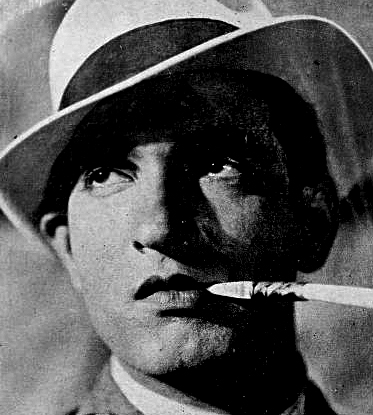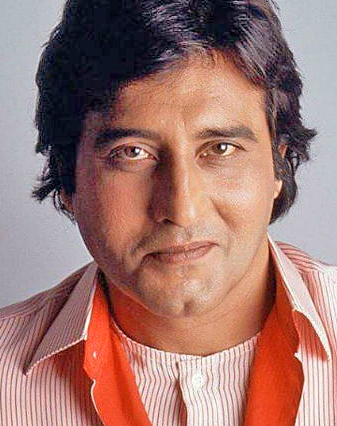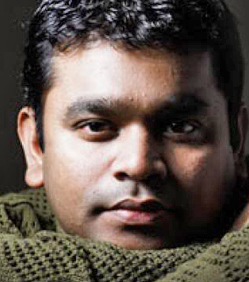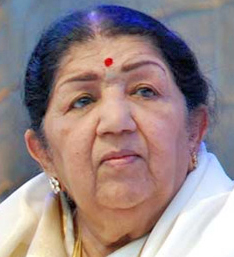Bollywood Masala Mix
Surendra 'the other Saigal' was an actor and 'hit' singer

Surendranath Sharma (November 11, 1910 - 1987) was a singer-actor of Hindi films known by his mononym, Surendra. Educated in Punjab to be a lawyer by profession, he came to Bombay to become a singer on the recommendation of a Delhi distributor and his friends. He was "picked" by Mehboob Khan whom he met at Sagar Movietone, to sing and act in films as an alternative to the then Calcutta-based singer-actor, K. L. Saigal. Surendra started his career with his debut starring role in Deccan Queen (1936) directed by Mehboob Khan. He soon became a part of Sagar Movietone when his song "Birha Ki Aag Lagi More Man Mein" from the film became an instant hit.
Referred to as "Bombay's Saigal", or "the other Saigal", Surendra worked with acclaimed music directors like Anil Biswas, Khemchand Prakash, Ram Ganguly and Naushad. With composer Naushad, Surendra gave a musical success with the film Anmol Ghadi (1946). Cited as one of the "most popular films of the 1940s" with "evergreen (i.e. classic) hit" songs, it had Surendra singing the famous duet with actress-singer Noor Jehan, "Awaaz De, Kahan Hai".
Surendra acted in about 74 films from 1936-1977, nine of which were to be with his mentor Mehboob Khan. Stated to be an "immediate precursor" to Dilip Kumar, Surendra continued to enjoy immense popularity in the 1940s, giving way to character roles with rare singing from the 1950s onwards. His last role as a lead actor was in Ram Bhakt Vibhishan (1958).
In 1940, Mehboob Khan produced Aurat under the banner of his National Studios. Mehboob was to later remake Aurat as Mother India in 1957. In Aurat, he cast Surendra as the older brother, a role to be played by Rajendra Kumar in Mother India. Yakub was cast as the younger brother Birju, with Sardar Akhtar playing the mother's role. The song "Utth Sajni Khol Kiware, Tere Sajan Aye Duware" sung by Surendra and Jyoti went on to become a "big hit", with Baburao Patel, editor of the cine-magazine Filmindia claiming that "Surendra had never sung better" in the June 1940 issue.
Ali Baba (1940) had Surendra starring in the title role, with Sardar Akhtar and Waheedan Bai. The film was a bilingual, made both in Hindi and Punjabi, with Surendra playing the double role of Alibaba and his son. The popular song from this film was "Hum Aur Tum Aur Ye Khushi Ye Kehkahe Ye Dillagi" sung by Surendra and Waheedan.
Following a hiatus of two years Surendra went on to act in Jawani (1942) directed by Wajahat Mirza. In 1943, he acted in Paigham directed by music director Gyan Dutt, Vish Kanya by Kidar Sharma and Vishwas by Homi Wadia.
In 1944, Surendra acted in three films, Lal Haveli, Bhatruhari and Miss Devi. In 1946, he and Noor Jehan starred again with a third singer-actor Suraiya, in what was to be the highest grossing film of that year, Anmol Ghadi. Elaan made in 1947, was a Mehboob Khan Productions, directed by Mehboob Khan. The film, a Muslim social, followed the fortunes of two step-brothers, one "evil" called Sajjad played by Himalayawala, the other good, called Javed acted by Surendra, who was mistreated by Sajjad and his mother, played by Zebunissa. Both brothers were in love with the same girl, Munawwar Sultana. Claimed to be a "stylised Muslim social" it had music by Naushad. Elaan was in trouble with the censors and banned for a time. A third film made by Sinha in 1949, Imtihan, also flopped. According to Surendra, in an interview with Krishna, he stated the films were "very badly made and released without any build-up" and "very poor in content". The films faring poorly brought his acting career in a lead role to a near halt.
In 1948, Mehboob Khan cast Surendra in Anokhi Ada, with Naseem Banu and Prem Adib. In 1950, Surendra was part of an ensemble cast in Hindustan Hamara, a fictional story that used "extensive documentary footage". Produced by the Documentary Unit of India and directed by Paul Zils, the film also featured Prithviraj Kapoor, Dev Anand, Durga Khote and P. Jairaj.
1n 1952, while going through a rough patch in films Surendra was offered to enact Tansen in Vijay Bhatt's film Baiju Bawra. In 1954, Surendra's version of the song from Gawaiya "Teri Yaad Ka Deepak Jalta Hai Din Raat" was claimed to be a "super-hit". The roles were less, and Surendra switched to playing character roles. Some of his films in the period from late 1950s to 1970s included Rani Roopmati (1957), Mughal-E-Azam (1960) where he again played Tansen, Hariyali Aur Raasta (1962), Waqt (1965), Boond Jo Ban Gayee Moti, Milan (1967), Saraswatichandra (1968).
Surendra was married to Satya Rishi, in Lahore on 3rd March 1945. He and Satya had four children, two daughters and two sons, Sunita, Jeetendranath, Kailash and Rohini. He started an ad film company Surendra Film Productions making commercials. The name was changed to J K Advertisers and then FAR Productions, later run by his sons Jeetendra and Kailash. His son Jeetendra Surendranath and daughter Rohini Pinto managed the Indian Advertising Company FAR Commercials. His younger son Kailash Surendranath was an ad and feature film-maker and founder of Kailash Picture Company. He is married to actress Aarti Gupta.
Surendra died in 1987 at the age of 78 years, in Mumbai, Maharashtra, India.
Referred to as "Bombay's Saigal", or "the other Saigal", Surendra worked with acclaimed music directors like Anil Biswas, Khemchand Prakash, Ram Ganguly and Naushad. With composer Naushad, Surendra gave a musical success with the film Anmol Ghadi (1946). Cited as one of the "most popular films of the 1940s" with "evergreen (i.e. classic) hit" songs, it had Surendra singing the famous duet with actress-singer Noor Jehan, "Awaaz De, Kahan Hai".
Surendra acted in about 74 films from 1936-1977, nine of which were to be with his mentor Mehboob Khan. Stated to be an "immediate precursor" to Dilip Kumar, Surendra continued to enjoy immense popularity in the 1940s, giving way to character roles with rare singing from the 1950s onwards. His last role as a lead actor was in Ram Bhakt Vibhishan (1958).
In 1940, Mehboob Khan produced Aurat under the banner of his National Studios. Mehboob was to later remake Aurat as Mother India in 1957. In Aurat, he cast Surendra as the older brother, a role to be played by Rajendra Kumar in Mother India. Yakub was cast as the younger brother Birju, with Sardar Akhtar playing the mother's role. The song "Utth Sajni Khol Kiware, Tere Sajan Aye Duware" sung by Surendra and Jyoti went on to become a "big hit", with Baburao Patel, editor of the cine-magazine Filmindia claiming that "Surendra had never sung better" in the June 1940 issue.
Ali Baba (1940) had Surendra starring in the title role, with Sardar Akhtar and Waheedan Bai. The film was a bilingual, made both in Hindi and Punjabi, with Surendra playing the double role of Alibaba and his son. The popular song from this film was "Hum Aur Tum Aur Ye Khushi Ye Kehkahe Ye Dillagi" sung by Surendra and Waheedan.
Following a hiatus of two years Surendra went on to act in Jawani (1942) directed by Wajahat Mirza. In 1943, he acted in Paigham directed by music director Gyan Dutt, Vish Kanya by Kidar Sharma and Vishwas by Homi Wadia.
In 1944, Surendra acted in three films, Lal Haveli, Bhatruhari and Miss Devi. In 1946, he and Noor Jehan starred again with a third singer-actor Suraiya, in what was to be the highest grossing film of that year, Anmol Ghadi. Elaan made in 1947, was a Mehboob Khan Productions, directed by Mehboob Khan. The film, a Muslim social, followed the fortunes of two step-brothers, one "evil" called Sajjad played by Himalayawala, the other good, called Javed acted by Surendra, who was mistreated by Sajjad and his mother, played by Zebunissa. Both brothers were in love with the same girl, Munawwar Sultana. Claimed to be a "stylised Muslim social" it had music by Naushad. Elaan was in trouble with the censors and banned for a time. A third film made by Sinha in 1949, Imtihan, also flopped. According to Surendra, in an interview with Krishna, he stated the films were "very badly made and released without any build-up" and "very poor in content". The films faring poorly brought his acting career in a lead role to a near halt.
In 1948, Mehboob Khan cast Surendra in Anokhi Ada, with Naseem Banu and Prem Adib. In 1950, Surendra was part of an ensemble cast in Hindustan Hamara, a fictional story that used "extensive documentary footage". Produced by the Documentary Unit of India and directed by Paul Zils, the film also featured Prithviraj Kapoor, Dev Anand, Durga Khote and P. Jairaj.
1n 1952, while going through a rough patch in films Surendra was offered to enact Tansen in Vijay Bhatt's film Baiju Bawra. In 1954, Surendra's version of the song from Gawaiya "Teri Yaad Ka Deepak Jalta Hai Din Raat" was claimed to be a "super-hit". The roles were less, and Surendra switched to playing character roles. Some of his films in the period from late 1950s to 1970s included Rani Roopmati (1957), Mughal-E-Azam (1960) where he again played Tansen, Hariyali Aur Raasta (1962), Waqt (1965), Boond Jo Ban Gayee Moti, Milan (1967), Saraswatichandra (1968).
Surendra was married to Satya Rishi, in Lahore on 3rd March 1945. He and Satya had four children, two daughters and two sons, Sunita, Jeetendranath, Kailash and Rohini. He started an ad film company Surendra Film Productions making commercials. The name was changed to J K Advertisers and then FAR Productions, later run by his sons Jeetendra and Kailash. His son Jeetendra Surendranath and daughter Rohini Pinto managed the Indian Advertising Company FAR Commercials. His younger son Kailash Surendranath was an ad and feature film-maker and founder of Kailash Picture Company. He is married to actress Aarti Gupta.
Surendra died in 1987 at the age of 78 years, in Mumbai, Maharashtra, India.
at age 70

He was 70.
Actor Vinod Khanna, once acknowledged as one of Bollywood’s most handsome heroes, passed away at a Mumbai hospital on Thursday at the age of 70. He was suffering from advanced cancer of the bladder.
Officials at the HN Reliance Hospital said he breathed his last at 11.20 am, weeks after he was hospitalised for severe dehydration.
Millions of Indians had reacted with shock and sympathy after a photograph of a frail and haggard Khanna in the hospital was leaked on social media weeks ago.
"It's a sad moment for us... We request you all (media) for privacy," the actor's brother Pramod Khanna said.
Khanna, born in Peshawar in present-day Pakistan, was the Bharatiya Janata Party (BJP) member of the Lok Sabha from Gurdaspur in Punjab. He was into his fourth term as MP from the seat.
News of his death triggered an outpouring of grief from Bollywood actors and millions of fans on social media.
Feted as one of the most handsome actors of the Hindi film industry, Khanna made his acting debut in 1968 with "Man Ka Meet". His potential was first noticed in Gulzar's "Mere Apne" in 1971.
Much sought after in the 1970s and 1980s, he acted in several blockbusters, including "Mera Gaon Mera Desh", "Reshma Aur Shera", "Elan", "Insaaf" and "Dayavan".
Actor Rishi Kapoor, who was Khanna’s co-star in the 1977’s Amar Akbar Anthony, tweeted a poster of the film. “We will miss you Amar. RIP,” Kapoor said, referring to Khanna’s screen name in the film.
In a tweet, actor Richa Chadha decribed Khanna as “the fantasy of most women in the northern India through the 1980s”.
Khanna, who studied commerce at Mumbai’s Sydenham College before moving into acting. started his Bollywood career in the roles of villains in late 1960s. But once he started playing the lead roles, he became a darling of the masses and is credited with making macho look good.
After giving several hit films, Khanna quit films in 1982 – when he was at the peak of his career – and joined controversial guru, Osho Rajneesh. Though Khanna returned after five years and did more films, other actors had by then moved in to fill the vacuum.
Khanna acted in more than 146 films including Imtihan (1974) opposite Tanuja, a movie remembered for its hit songs. He was adept at handling both romantic and action films with ease, getting under the skin of his characters with ease. In 1988, he played the role of an aging gangster in Dayavaan. He acted with top stars Amitabh Bachhan and Dharmendra in several Hindi movies. He was last seen in Shah Rukh Khan’s Dilwale (2015).
Khanna was married to Geetanjali between 1971 and 1985 and has two sons with her, Rahul Khanna and Akshaye Khanna. He married Kavita with whom he has two children, Sakshi and Shraddha.
Officials at the HN Reliance Hospital said he breathed his last at 11.20 am, weeks after he was hospitalised for severe dehydration.
Millions of Indians had reacted with shock and sympathy after a photograph of a frail and haggard Khanna in the hospital was leaked on social media weeks ago.
"It's a sad moment for us... We request you all (media) for privacy," the actor's brother Pramod Khanna said.
Khanna, born in Peshawar in present-day Pakistan, was the Bharatiya Janata Party (BJP) member of the Lok Sabha from Gurdaspur in Punjab. He was into his fourth term as MP from the seat.
News of his death triggered an outpouring of grief from Bollywood actors and millions of fans on social media.
Feted as one of the most handsome actors of the Hindi film industry, Khanna made his acting debut in 1968 with "Man Ka Meet". His potential was first noticed in Gulzar's "Mere Apne" in 1971.
Much sought after in the 1970s and 1980s, he acted in several blockbusters, including "Mera Gaon Mera Desh", "Reshma Aur Shera", "Elan", "Insaaf" and "Dayavan".
Actor Rishi Kapoor, who was Khanna’s co-star in the 1977’s Amar Akbar Anthony, tweeted a poster of the film. “We will miss you Amar. RIP,” Kapoor said, referring to Khanna’s screen name in the film.
In a tweet, actor Richa Chadha decribed Khanna as “the fantasy of most women in the northern India through the 1980s”.
Khanna, who studied commerce at Mumbai’s Sydenham College before moving into acting. started his Bollywood career in the roles of villains in late 1960s. But once he started playing the lead roles, he became a darling of the masses and is credited with making macho look good.
After giving several hit films, Khanna quit films in 1982 – when he was at the peak of his career – and joined controversial guru, Osho Rajneesh. Though Khanna returned after five years and did more films, other actors had by then moved in to fill the vacuum.
Khanna acted in more than 146 films including Imtihan (1974) opposite Tanuja, a movie remembered for its hit songs. He was adept at handling both romantic and action films with ease, getting under the skin of his characters with ease. In 1988, he played the role of an aging gangster in Dayavaan. He acted with top stars Amitabh Bachhan and Dharmendra in several Hindi movies. He was last seen in Shah Rukh Khan’s Dilwale (2015).
Khanna was married to Geetanjali between 1971 and 1985 and has two sons with her, Rahul Khanna and Akshaye Khanna. He married Kavita with whom he has two children, Sakshi and Shraddha.

The trailer of 'Sachin: A Billion Dreams', which encapsulates the professional highs and the lesser-known personal life of Sachin Tendulkar, has already piqued the audience's curiosity. And now, adding to the anticipation, the makers are all set to release the first song, composed and sung by AR Rahman, from the biographical film today.
What's interesting is that the release of the number — 'Hind Mere Jind' — coincides with the cricketing legend's birthday. The power-packed track promises to fill listeners with a sense of pride for the nation. The biographical film kicks off with a 10-year-old Sachin watching Kapil Dev lift the World Cup, and culminates with him lifting the World Cup before his retirement from the game.
What's interesting is that the release of the number — 'Hind Mere Jind' — coincides with the cricketing legend's birthday. The power-packed track promises to fill listeners with a sense of pride for the nation. The biographical film kicks off with a 10-year-old Sachin watching Kapil Dev lift the World Cup, and culminates with him lifting the World Cup before his retirement from the game.
just not for films

The nightingale of India Lata Mangeshkar sat for a tete-a-tete with Bombay Times and poured her heart out.
The 87-year-old playback singer talked about the love she has for music and the iconic musicians she has shared the mic with over the years. "I liked singing with everyone – Mukesh bhiaya, Rafi saab and Talat Mahmood – but I enjoyed singing with Kishore da the most," she said.
While it has been quite sometime since she lent her voice to a Hindi film, she reveals that she still pursues singing, just not for films nowadays. "I sing even today, it's just that I don't sing for films anymore," she said.
The 87-year-old playback singer talked about the love she has for music and the iconic musicians she has shared the mic with over the years. "I liked singing with everyone – Mukesh bhiaya, Rafi saab and Talat Mahmood – but I enjoyed singing with Kishore da the most," she said.
While it has been quite sometime since she lent her voice to a Hindi film, she reveals that she still pursues singing, just not for films nowadays. "I sing even today, it's just that I don't sing for films anymore," she said.